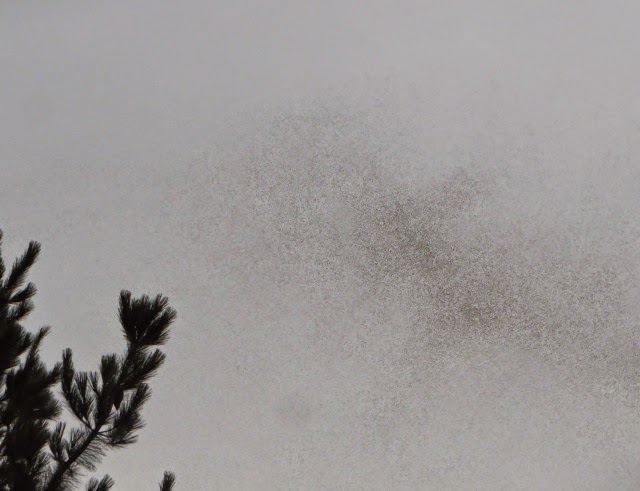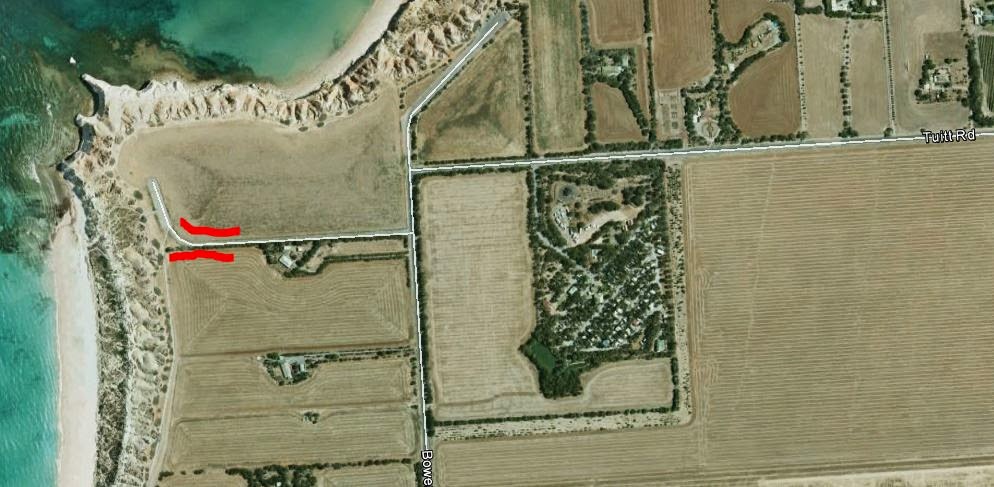Some book Reviews
I have read some interesting books recently and have a couple more goodies just picked up at the library.
Unfortunately it had to be returned to the library so I can't give chapter and verse on specifics. An issue that struck me particularly was in the discussion of sight where it appears that some species have good long-vision in one eye and good close vision in the other. This is explained in terms of structures in the eyes not simply an individual bird having issues. This somehow explains why Peregrine Falcons usually stoop in a swerve to the right! There was also discussion of the sense of being able to recognise magnetic fields.
My only quibble is that in many cases I wish he had included the quantitative data, as either a table or a chart. But his explanations were clear enough for the narrative, so I think feeling the lack is a personal problem for me.
Rated extremely highly.
Bird Sense
This book by Tim Birkhead is extremely interesting if one is interested in birds (or indeed sensory issues with most anything - in many cases the author draws on other orders to show the development of knowledge about birds senses).Unfortunately it had to be returned to the library so I can't give chapter and verse on specifics. An issue that struck me particularly was in the discussion of sight where it appears that some species have good long-vision in one eye and good close vision in the other. This is explained in terms of structures in the eyes not simply an individual bird having issues. This somehow explains why Peregrine Falcons usually stoop in a swerve to the right! There was also discussion of the sense of being able to recognise magnetic fields.
My only quibble is that in many cases I wish he had included the quantitative data, as either a table or a chart. But his explanations were clear enough for the narrative, so I think feeling the lack is a personal problem for me.
Rated extremely highly.
A Carpet ride to Khiva
This is by Christopher Aslan Alexander. His middle name is a result of him having been born in Turkey (to British parents) and not necessarily anything to do with Narnia.
I think I picked the book up as a result of its sub-title "Seven Years on the Silk Road". This is fair enough as Khiva - a town/city/oasis in Uzbekistan is on the Silk Road - but it isn't as I had expected about travelling on that route. The backbone of the book is the story of the author, as an aid worker setting up a hand made carpet making factory. From my two visits to Central Asia I am very interested in the area, and especially the carpets therefrom so I found the book very interesting.
The opening prologue is set at the end of the story with the author in the transit lounge at Tashkent airport having been kicked out of the country. At a couple of points in the book he seems to have expressed surprise at this which may be a tad ingenuous given his propensity for giving a serve to:
- the President of the country;
- the corrupt public servce; and (particularly)
- the secret police
Towards the end of the book it seems to be point 2 that got him - he refused to let the Mayor of Khiva steal the finished carpets - possibly with an assist from point 3. (He then finds largely similar situations in other Central Asian countries, but eventually gets back to the UK.) I am surprised that it took them 7 years to boot him and, noting point 3 above, that they kicked him out rather than simply kicked him (many times).
The actual story and detail about the carpet making is extremely interesting, as is the story about his life in Khiva and the story of the Uzbeks he works with.
My only criticism is that he gives few details about his personal situation. This is a tad frustrating as he repeats how his conversations with Uzbeks all seem to include questions from the locals about his sex life and specifically his dealings with the industry of negotiable affection and/or donkeys. He never gives the answer to such questions (but does explain quite a bit about how the Uzbeks handle such things so one concludes that he doesn't like that sort of thing)!
Rated very highly.
Somewhat surprisingly (especially after the riot in Kabul described towards the end of the book ) he is still alive as described in this interview.
As a follow up it was pleasing to read this story in the New York Times. Given the past antics of the CIA with respect to changes towards democracy, and the presence of US bases in Uzbekistan I'd say "watch this space".
Had I read that review, and noting my usual position I wouldn't have touched this book with a disinfected bargepole. Instead I read an article written for a more popular audience that said the book was about the first Redex trial. Since Carey is pretty good with words (at least as assessed by the judges of the Booker Prize) I thought it might be interesting.
Unfortunately not so. The coverage of the Trial, as far as I got into it (I gave up at Darwin) was fair enough. It is however secondary to arty-farty character development and views of Australia's past racial relations, both of which irritate me more than somewhat.
Of the 5 main characters I only liked 1 (Irene Boobs).
Her husband (Titch) seemed to be interesting but there was little written about his views - it was all filtered through Irene or Willie Bachuber.
I suspect that Bachuber was actually intended to be the main character. He is a very bizarre type - German origin - possibly with some indigenous ancestry. That may get explained at the end of the book but I'd lost interest by then. I went to the last chapter to see if it resolved stuff but it appeared to be written from the view of another minor character and was strong on inference but very weak on detail!
The other two main characters are Titch's father (seemingly a caricature of Gelignite Jack Murray) and a royal pain the arse, and a suit from Holden who is also a pain the arse.
Talking of pains in the arse, this book could be useful in resolving them, if the paper was petal-soft and the spine were perforated! Only read if desperate.
Somewhat surprisingly (especially after the riot in Kabul described towards the end of the book ) he is still alive as described in this interview.
As a follow up it was pleasing to read this story in the New York Times. Given the past antics of the CIA with respect to changes towards democracy, and the presence of US bases in Uzbekistan I'd say "watch this space".
A Long Way From Home
I am normally wary of work by Peter Carey who is a winner of the Booker Prize and normally features the words "A Novel" on the jacket of his tomes. Others don't share this view as exemplified by this onanisic article in the Australian Review of Books.Had I read that review, and noting my usual position I wouldn't have touched this book with a disinfected bargepole. Instead I read an article written for a more popular audience that said the book was about the first Redex trial. Since Carey is pretty good with words (at least as assessed by the judges of the Booker Prize) I thought it might be interesting.
Unfortunately not so. The coverage of the Trial, as far as I got into it (I gave up at Darwin) was fair enough. It is however secondary to arty-farty character development and views of Australia's past racial relations, both of which irritate me more than somewhat.
Of the 5 main characters I only liked 1 (Irene Boobs).
Her husband (Titch) seemed to be interesting but there was little written about his views - it was all filtered through Irene or Willie Bachuber.
I suspect that Bachuber was actually intended to be the main character. He is a very bizarre type - German origin - possibly with some indigenous ancestry. That may get explained at the end of the book but I'd lost interest by then. I went to the last chapter to see if it resolved stuff but it appeared to be written from the view of another minor character and was strong on inference but very weak on detail!
The other two main characters are Titch's father (seemingly a caricature of Gelignite Jack Murray) and a royal pain the arse, and a suit from Holden who is also a pain the arse.
Talking of pains in the arse, this book could be useful in resolving them, if the paper was petal-soft and the spine were perforated! Only read if desperate.
Sinning across Spain
In another post reviewing my reading matter I gave a very high rating to "The Attachment" by Ailsa Piper and Tony Doherty. That was an exchange of emails between the authors following the publication of this book about Ailsa's walk on a pilgrimage to Santiago di Compostella.
I am sorry to say the first book is far less interesting. It is well written but instead of covering ideas, as does The Attachment it is much more about Ailsa's feelings. That can be summed up in the phrase "Too much information". So she spend a fair while one evening assessing whether to have sex with a fellow pilgrim (she didn't) but I don't really want to know, nor care about, this.
Quite a few of the people she meets along the way are interesting characters - mainly good people - but other than how they interact with her, little is written about them. One whose background is covered seems to merit special attention because of the abuse suffered by his young brother. Again, too much information.
I read the whole book (unlike the Peter Carey effort above) because I wanted to find out how it finished. However, I wouldn't consider buying it (or indeed borrowing it again to re-read.



Comments